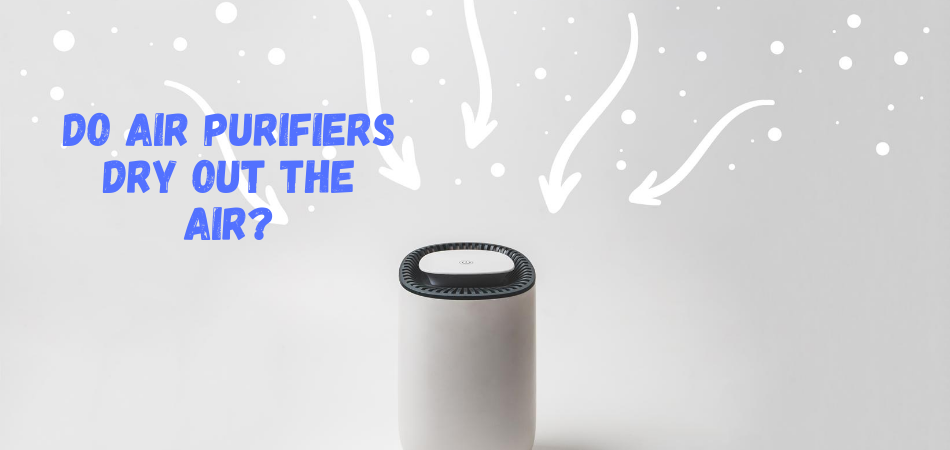Most of the people always doubt purchasing an air purifier whether it dries out the air. Day by day, both our internal and external environment is becoming poor in condition due to industrialization and climate change. Many houses are using air purifiers to get fresh and clean air. But no instrument can beat the natural environment.
But still, we need to use it for our health benefit. However, this question always arises among the air purifier users— do air purifiers dry out the air? It is a so-called myth among them. It is essential to own a correct gadget that will neither moisture nor dry the atmosphere.
Do Air Purifiers Dry Out The Air?
Whenever the question arises, “do air purifiers dry out the air?” The answer is pretty simple as they don’t dry out the air because they are incapable of removing or adding moisture from the air.
These products have a filtration system that helps to grab different types of airborne particles from surrounding and vanish them. It has a fan inside it, and the fan captures harmful particles and filters them properly to remove toxic ingredients and then disperses it into the atmosphere.

Many people may not notice, but air conditioning or heating can be the extra dry air. Air conditioning pulls out the humidity inside a room and decreases the temperature to make the place cool. Sometimes the humidity of your room may also decrease because of climate conditions, and it may dry out the air by pulling out moisture from the room.
Apart from these, heaters or dehumidifiers increase the dry air in your room. When you use a dehumidifier at a high extradition level for an extended period, it dries out the atmosphere and causes different health issues.
But if you notice the air of your room is drying out unnecessarily, you can use a humidifier that will add moisture in your room. It mainly occurs during the winter season when the air is extensively dry. You can use both air purifiers and humidifiers at the same time because they won’t affect each other’s performance at all.
On the other hand, if your room has an excessive amount of moisture, it may cause an uncomfortable condition to live. Moisture level increases when there is extreme heat in the environment. You can simultaneously use both an air purifier and dehumidifier since they don’t work against each other in any way.
Why Don’t Air Purifiers Make the Air Dry?
It is a simple question because an air purifier doesn’t have any mechanism or system to generate or produce moisture from the air. When the air passes through the filters, it captures any kinds of airborne contaminants or particles. Most importantly, air purifiers can’t catch moisture through its purification filters in any substantial amount.
The dehumidifier is a perfect machine to remove moisture from indoor air. However, we have already mentioned if you use it for a long time at a higher-level setting, it will dry out the air excessively. In a nutshell, the dehumidifier accumulates moisture into a tank that can be taken out into a drain.
Frequently Asked Questions
However, we’re using air purifiers widely in our daily life to avoid any bad smell or refresh the surrounding air. But can’t decrease the humidity from the air. Here, we’ve also included some tricky questions that you may find later.
Can air purifiers be harmful?
Can I leave my air purifier on all night?
Should I sleep with an air purifier on?
Do air purifiers help with smells?
Conclusion
“Do air purifiers dry out the air?” And hopefully, you’ve got the correct idea of it. Air purifiers neither add humidity nor dry out the air. The sole purpose of using an air purifier is to receive a fresh and clean breathable air quality inside the house. If you want to moisture your room during dry weather, you can use humidifiers.
On the other hand, dehumidifiers are suitable for reducing moisture from the air. Dry air may lead to various health issues like sinuses, dry throat, scaly skin, asthma, and nosebleeds. So it is better to inspect the environment you are living and take steps accordingly to maintain a healthy and sound life.
